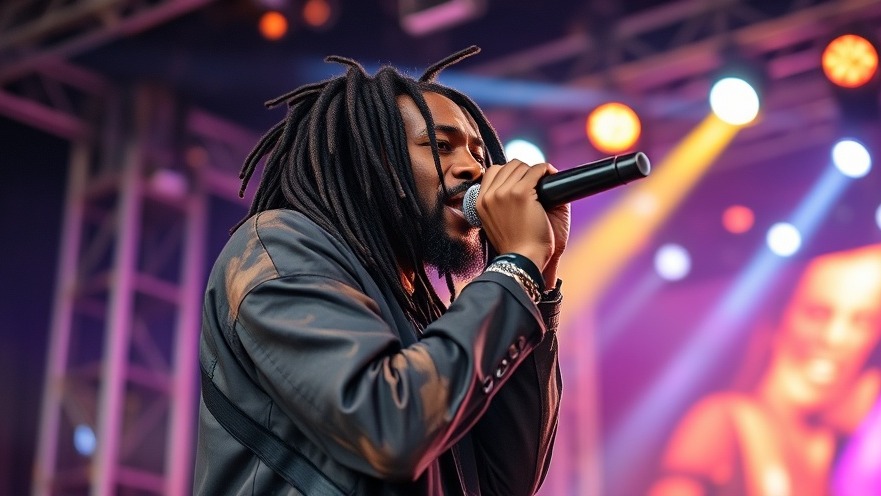
A Controversial Performance at Glastonbury: Bob Vylan's Anti-Israel Chants
The UK punk-rap duo Bob Vylan has ignited significant controversy following their performance at the renowned Glastonbury Festival this past weekend. During their act, they led the crowd in chants against Israel, specifically shouting phrases such as 'death to the IDF.' This incident has drawn sharp condemnation from festival organizers and various public figures, reflecting a broader cultural clash regarding political expression in music.
Defending Free Expression or Crossing the Line?
In the era of live performances and festival culture, the intersection of music and political discourse is increasingly prominent. Artists often feel compelled to comment on global events through their art. However, the question remains: at what point does political expression become incendiary? Organizers of Glastonbury have publicly stated that Bob Vylan’s remarks crossed a crucial line, signaling that while free speech is valued, there are boundaries to consider, especially in a global context rife with conflict.
The Reaction: Outrage and Support
The aftermath of the performance has been met with a mixed response. Many attendees expressed excitement about the authenticity of Bob Vylan's message, believing it to be a necessary critique of political issues in Israel and Palestine. On the contrary, others have voiced their concern about promoting hate or inciting violence, showcasing a society divided on the topic. This duality of reception illustrates the tightrope artists walk when addressing sensitive subjects in public forums.
Broader Context: Music and Political Activism
Historically, music has served as a medium for social change. Acts such as Bob Marley and Rage Against the Machine have used their platforms to point out injustices. However, the context of modern geopolitical affairs can complicate these messages. For instance, with ongoing protests and demonstrations around the globe responding to U.S. foreign policy and local politics, the lines between music, activism, and rhetoric have blurred significantly.
Current Events and Their Influence on Art
As issues such as immigration policy, gun control, and civil rights continue to shape national conversations, the perspectives artists express can have significant ramifications. It's essential to assess how contemporary movements, like the Black Lives Matter campaign or the environmental justice movement, influence artists' messages. Bob Vylan’s performance fits into this tapestry, reflecting a growing trend of musicians engaging directly with pressing social issues.
Future Predictions: The Evolution of Art and Activism
As social dynamics and political landscapes evolve, artists like Bob Vylan will likely continue to push boundaries in public performances. Future music festivals may establish stricter guidelines regarding political commentary, balancing the focus on artistic expression with the importance of community safety and shared values. How audiences respond to these changes will shape the nature of live music events in coming years.
Emotional Impact: Audience Reactions
For many attendees, the response to Bob Vylan’s performance contradicts an ideal of unity at music festivals. While the art form allows expression, it's clear that underlying sentiments about Israel and Palestine run deep in the hearts of many. Audience members feeling empowered by the duo’s messages may also feel at odds with festival-goers who prioritize peace and understanding.
Common Misconceptions: Music, Activism, and Division
Many may argue that artists should refrain from mixing music with political activism; however, this viewpoint fails to consider the historical precedence of artists as change-makers. Music has the power to unite while simultaneously stirring dissent—a duality that can foster dialogue around pressing issues. Understanding this balance is imperative for navigating future performances that touch upon sensitive topics.
As the debate over artistic expression continues, it remains crucial for audiences and artists alike to engage in meaningful dialogue about the implications of such performances. It’s essential to consider perspectives and the impact of words spoken on a grand stage.
Call to Action: Engage in discussions within your community about music and political expression. Reflect on how music influences perceptions of current events, and consider how your voice can contribute to these ongoing conversations. This examination not only enriches understanding but may also catalyze change within the fabric of society.
 Add Element
Add Element  Add Row
Add Row 



Write A Comment